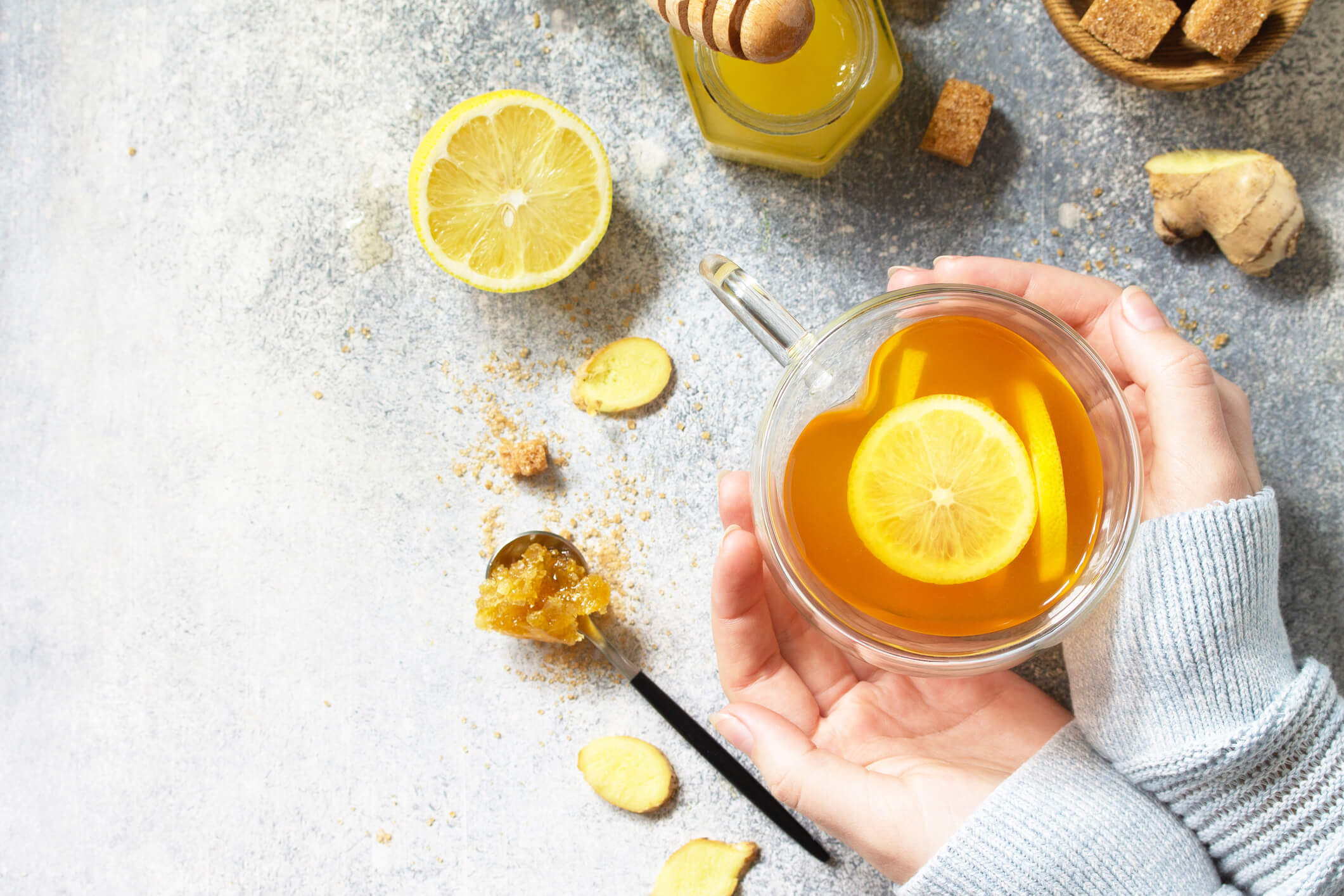Drink Up! 5 Types of Tea that Can Bolster Wellness
Some people start their day with a piping-hot cup of tea, while others nurse their mugs as they settle down for bed. No matter what time of day you drink it, tea is a powerful beverage that has benefits far beyond its delectable taste.
There are many types of tea out there, each with its own unique ingredients and properties. But if you’re looking for an easy and delicious way to bolster your health and wellness, you’ll want to turn your attention to a few specific kinds.
Technically speaking, there are only a few “true” teas—those derived from leaves from the tea plant, Camellia sinensis. Other types of tea that use dried flowers, seeds, roots and herbs are called “herbal tisanes” or herbal teas. Both true teas and herbal teas can contain compounds that are good for your body and brain, making them the perfect beverage for a wellness boost. Want to give tea a try? Check out these five tea types with wellness benefits.
1. Green tea
Green tea is one of the main types of traditional tea and is largely touted as one of the healthiest beverages in the world. The reason for this is that green tea is packed with wellness-boosting compounds that have far-reaching effects on your body.
Green tea contains powerful antioxidants that bolster the immune system and reduce free radicals in the body. It also is full of anti-inflammatory compounds called polyphenols that can have a wide range of benefits, from reducing arthritis pain to minimizing acne. Green tea is even believed to improve insulin sensitivity and regulate blood sugar levels. And, this traditional tea contains caffeine and L-theanine, an amino acid. Together, these can improve brain function, focus and energy.
2. Chamomile
Chamomile tea is made from the flowering Matricaria recuita plant and has been used for medicinal purposes for centuries. Today, what chamomile is most often used for is relaxation. It’s a popular nighttime tea for this reason—it has a calming effect on the body to help lull you into a peaceful sleep.
One of the potential reasons for chamomile’s purported sleep benefits is its ability to naturally reduce anxiety. People with generalized anxiety disorder have experienced symptom reduction after taking chamomile extract. Anxiety can contribute greatly to insomnia, so a cup of chamomile tea may be what you need to calm the nerves and head to bed relaxed. Good sleep night after night is critical to your overall wellness, promoting good immunity, mental health and focus.
3. Ginger
Ginger tea offers a powerful and unique flavor derived from yet another flowering plant. In addition to antioxidants and anti-inflammatory compounds that bolster the immune system, ginger also contains special chemicals called gingerols that are believed to soothe stomach problems like nausea, indigestion and IBS. This explains why ginger has been used as a natural remedy for an upset stomach for centuries.

4. Echinacea
Echinacea, derived from about 10 species of a flowering plant also known as the purple cornflower, has long been touted as a natural remedy for the common cold. However, the science is still out on how effective this flower can be on battling illnesses.
Some studies have shown that echinacea contains anti-inflammatory and immune-boosting compounds that might play a role in reducing the severity of cold symptoms. While it won’t completely prevent or cure a cold, a nice cup of echinacea tea might help you feel better faster.
5. Turmeric
The last tea on this list doesn’t really fit in either the traditional or herbal tea category, but it’s become an increasingly popular “tea” all the same! Turmeric tea is made by infusing ground turmeric root in water (usually along with lemon and honey) to create a powerful tea-like beverage with ample health benefits.
Turmeric’s secret weapon is curcumin, an active ingredient with immense antioxidant and anti-inflammatory properties. Curcumin is believed to work alongside turmeric’s other nutrients, minerals and compounds to reduce inflammation throughout the body, improve your immunity and even fight against cognitive decline.
Keeping your tea healthy and delicious
If the taste of your tea isn’t quite right, try adding healthy sweeteners and flavors like freshly squeezed lemon, a spoonful of honey or some ground ginger. Turmeric tea, in particular, also pairs well with milk. Avoid adding lots of sugar or artificial sweeteners to your tea to cut down on the added calories and keep your tea as healthy as possible.
Tea isn’t a miracle drink that will instantly cure your ails, but it might provide an extra boost to your health and wellness while also allowing you to enjoy a warm and tasty beverage. A cup or two a day is plenty—as with everything, you don’t want to overdo it! And, of course, if you think you’re experiencing a serious health problem, always consult a doctor for proper treatment.
In the meantime, enjoy your health-boosting brews!


Leave a comment